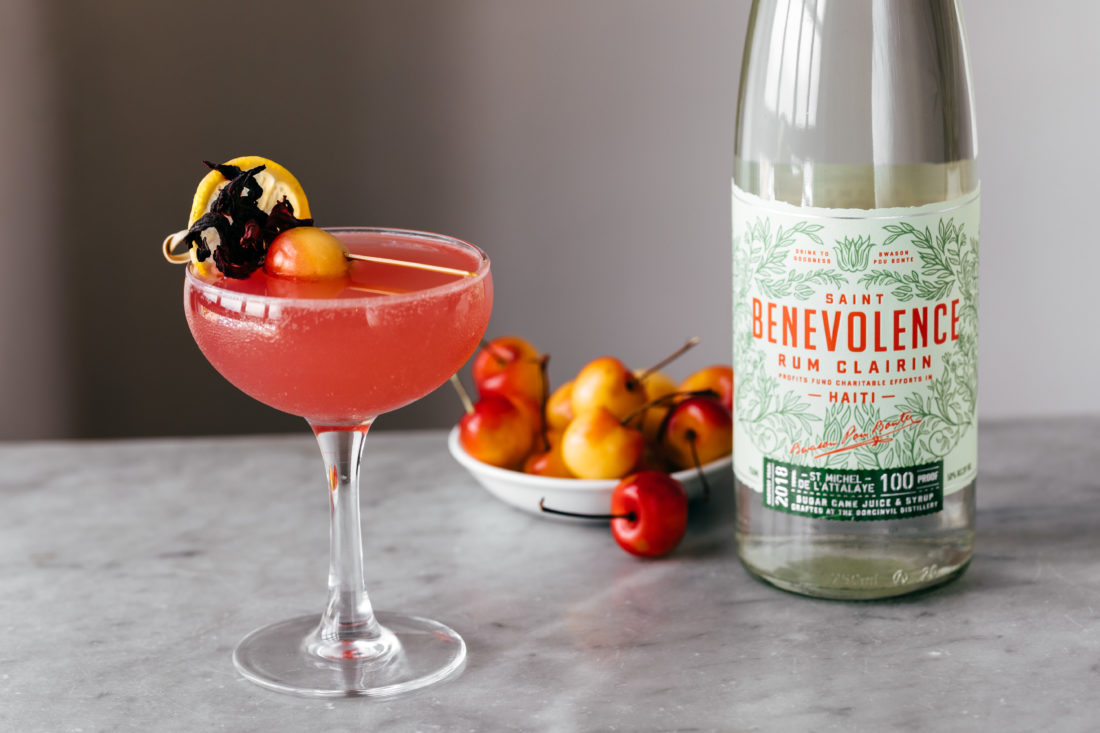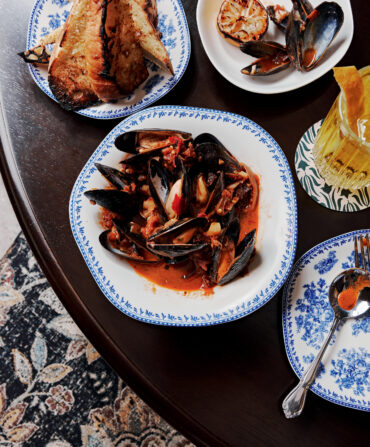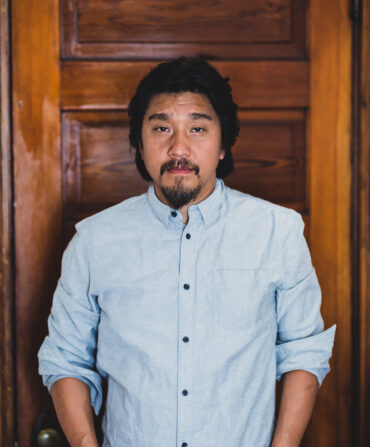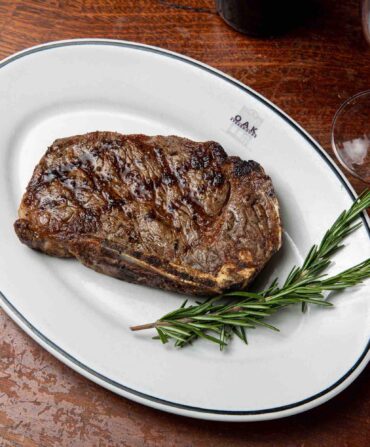If you’ve ever traveled to Haiti, someone probably poured you a sip of clairin…from a plastic jug…straight off a tiny pot still. This is the kind of spirit you sample from, say, an outdoor market or a cousin—not from a shop. Think of it like the country’s moonshine, only in that everyone makes it out back. Fermentation comes via wild or purchased yeast, and, like Martinique’s rhum agricole, clairin’s base always includes sugarcane juice or a sugarcane syrup, never molasses.
Commonly served at 115-proof, uncut and full of itself, the spirit bears intense notes of fruit and earth, a little sugar, and plenty of savory notes, like brine, oil, and grass. Imagine mezcal meeting rhum agricole, and you’ve got yourself a mental picture.
The historic picture is more complex, and goes all the way back to the slave revolts in the late 1700s, when Haiti became the first Black nation to win independence. The French and British refused to trade with the new government, thus shackling it to a lifetime of debt. In terms of rum production, the island was frozen in time. Where mega brands such as Mount Gay in Barbados and Cruzan in St. Croix emerged, Haiti retained only tiny, farm-style producers. Hundreds of them.
In 2018, the first clairin was bottled and finally exported to America, then expanded more widely, and the first aged options are now arriving in the Southeast. “You’ll notice a lot of similarities to mezcal, in the production and that underlying funkiness,” says Chase Babcock, the owner and cofounder of Saint Benevolence Rum Clairin, one of the first labels available in the United States. (Others include Boukman, Spirit of Haiti, and Patrick St. Surin Clairin Milot).
Saint Benevolence hails from the town of Saint-Michel-de-l’Attalaye, near the center of Haiti, and is made via traditional, eighteenth-century French distillation practices in small batches. The company uses a Creole copper pot still, and a blend of premium sugarcane juice and sugarcane syrup. “It’s probably not like any rum you’ve had before,” Babcock says, “but, we put ‘rum’ clairin on our label, to mimic the naming convention of rhum agricole—in hopes it might help people understand.”
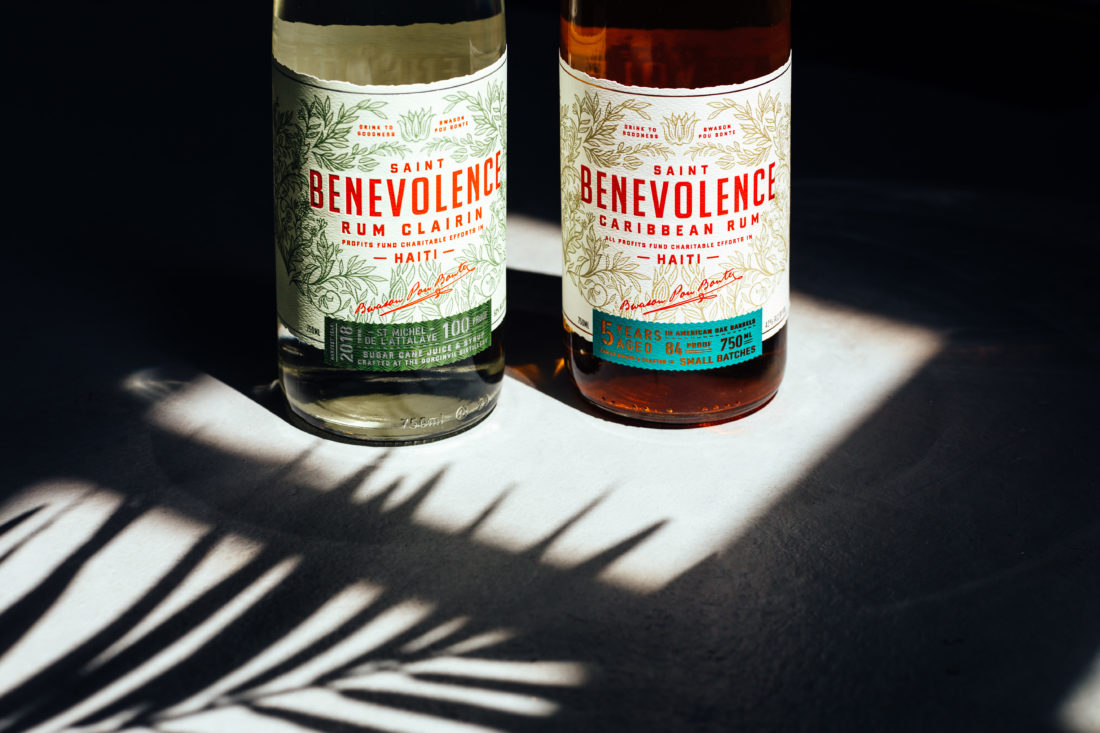
The company also seeks to live up to its name, Saint Benevolence: In 2002, Babcock and his father, Calvin, started the Living Hope Haiti charity school in Saint-Michel-de-l’Attalaye. The two men loved the style of clairin there, and saw a means to further fundraise. Today, 100 percent of their U.S. profits go back to Haiti. “Our most recent commitment has been cervical cancer care and prevention through Innovating Health International,” Babcock says. “Each bottle sold provides one cervical cancer screening.”
Over the past few months, the brand has both a new charity aim—providing ten Covid-19 vaccinations for every bottle sold—and a new offering: Saint Benevolence Aged Rum Clairin has just hit shelves; mellowed twelve months in new American oak, the spirit features a richer color and smoother flavor.
As for your first tastes of clairin, bottles are available through online retailers like Astor Wine & Spirits. However, Babcock suggests seeking out a cocktail bar to try it in first. “It’s pretty intense,” he says, with a laugh. “I think it’s easier to have it in a drink initially, to ease into those funky flavors.”
Chances to do so around the South are becoming more common. At Orlando, Florida’s Knife & Spoon, for instance, the Yes Whey cocktail spins off from a classic daiquiri with a pineapple-washed Saint Benevolence Clairin, lime, and simple syrup, served over crushed ice. At the Chloe hotel in New Orleans, the Uptown Funk cocktail is earning a mini cult status of its own with its combination of Saint Benevolence, a coconut water liqueur, Chareau Aloe Liqueur, and dry vermouth. Its creator, the bartender Zach McGehee, likens it to a clairin martini, with a spritz of coconut lime tincture. “We currently stock [Spirit of Haiti] Clairin’s Sajous, Roche, Casimir, and Vaval labels, as well as Saint Benevolence,” McGehee says. “More often than not, people have no clue what clairin is, but that’s part of why I enjoy this cocktail so much. People get excited to add a new spirit to their repertoire.”


